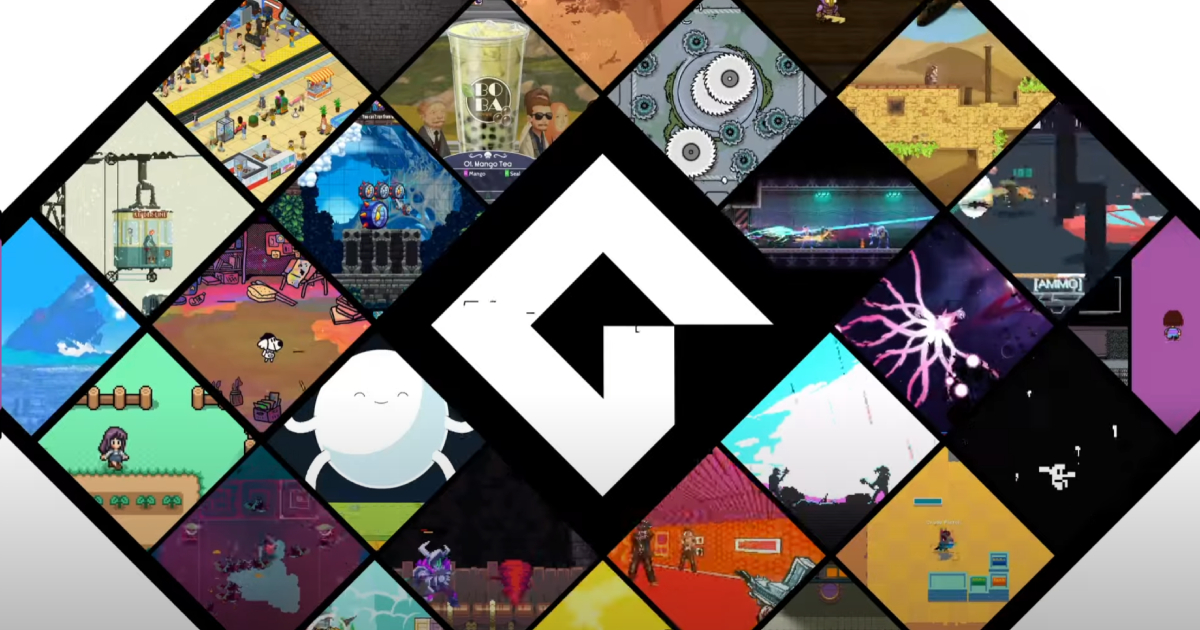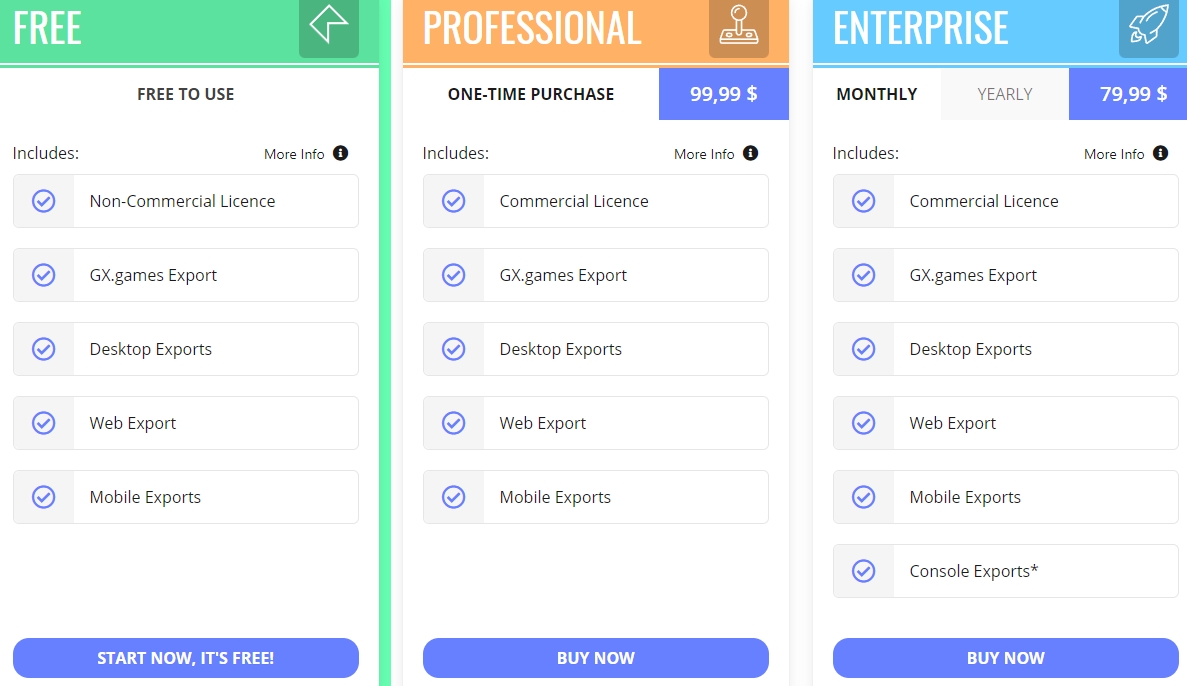GameMaker rolls out one-time fee commercial license, while other engines make "awkward moves" with their pricing
GameMaker has a special Thanksgiving surprise for its community by announcing major changes to its pricing model. And the team decided to do the opposite of what some other engine makers do.

What happened?
On November 21, GameMaker published a blog post, detailing the two biggest changes to the pricing model of its 2D engine:
- The engine will be completely free for non-commercial use on all platforms except for consoles;
- Indie and hobbyist developers that want to make money from their games will have to pay a one-time fee ($99.99) for a commercial license.
If developers need to export their commercial projects to consoles, they will have to pay $79.99 per month ($799.99 per year) for an Enterprise subscription. However, to access console export capabilities, they must be a registered developer for the selected platform (PlayStation, Xbox, Nintendo Switch).

“The free version serves as an entry point for beginners, a one-time commercial fee is for the curious ones, while the subscription-based enterprise tier provides a scalable option for more experienced developers and professionals,” GameMaker head Russell Kay explained.
Simply put, the free version of the engine has only two limitations: non-commercial use and non-console platforms (Windows, macOS, Linux, iOS, Android, HTML5, GX.games, etc.)
GameMaker creator YoYo Games first introduced the free plan in 2021, but it didn’t allow developers to share executable copies of their games or sell assets on the marketplace. In October of the same year, it also launched the GX.games platform for indie devs using GameMaker Studio 2.
With the latest changes, the company not only expanded the non-commercial license (you can now export your project to GX.games), but also simplified its Professional and Enterprise tiers.
GameMaker was used to make some successful indie games such as Katana Zero, Undertaile, Forager, Chicory: A Colorful Tale, and Post Void.
Why is GameMaker making changes to its pricing model?
Since Opera acquired YoYo Games for $10 million in 2021, the engine has seen a three-fold increase in its active user base. Over 6,000 games were also published on the GX.games platform. So the new pricing model is GameMaker’s way of saying “Thank You!” to the community.
“We have seen other platforms making awkward moves with their pricing and terms, so we thought, what if we did the opposite, something that could actually be good for developers?” Kay said. “Our success is measured by the number of people making games!”
The “awkward moves” part is likely a shot at Unity, which earlier this year decided to charge per-install fees with its new Runtime Fee model. The move caused a huge backlash in the community, with some indie developers even thinking about migrating to other platforms, including GameMaker. In September, Terraria maker Re-Logic donated $200k to Godot and FNA engines, saying it can’t ignore “predatory moves made against studios everywhere.”
The rollout of the Runtime Fee also forced Unity to eventually revamp the most controversial elements of the model and led to the resignation of CEO John Riccitiello. So GameMaker is now trying to attract more developers, especially indies, by making its engine more flexible and easier to use for both beginners and professionals.
Other important announcements and clarifications
- In addition to the pricing changes, GameMaker decided to make all its asset bundles free for everyone.
- Developers will also be able to use the engine to create animated live wallpapers for Windows and Opera GX browser.
- Even the free version of GameMaker still doesn’t have a watermark (“If you fancy adding a splash screen or our logo somewhere, though, we’d be very grateful”).
- Developers who are currently paying for old Creator or Indie tiers will be able to purchase a one-time Professional license or sign up for an Enterprise tier once their subscription expires.
- GameMaker will also provide its customers with a discount for the one-time license based on how much they have previously paid for subscriptions. “If you’ve spent a year on our old Indie tier, you will automatically be granted a free Professional license,” the company explained.